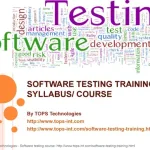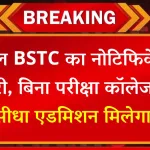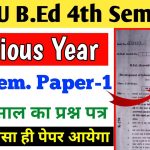Bachelor of Education (B.Ed) 4th Semester focuses on preparing future teachers with essential knowledge, skills, and values. This article covers various subject questions and answers based on the 2017 question paper. It includes theoretical, practical, and application-based queries to help understand the syllabus comprehensively.
Foundations of Education
Question: What are the main aims of education according to Gandhiji?
Answer: The main aims are character-building, self-reliance, and promoting spiritual development through vocational training and community service.
Question: Define the concept of Inclusive Education.
Answer: Inclusive education involves accommodating diverse learners in mainstream classrooms, providing equal opportunities regardless of abilities or disabilities.
Question: What is the role of education in social change?
Answer: Education acts as a catalyst for social change by instilling values, promoting critical thinking, and empowering individuals to reform societal norms.
Question: Explain the importance of value education in schools.
Answer: Value education fosters moral development, ethical behavior, and helps students become responsible citizens with empathy and integrity.
Question: Discuss the significance of curriculum in education.
Answer: Curriculum serves as a roadmap for teachers and learners, ensuring systematic knowledge transfer and skill development aligned with educational goals.
Question: What is the relationship between philosophy and education?
Answer: Philosophy provides the foundational principles that shape educational theories, goals, and practices, aligning them with societal and individual needs.
Question: Explain the importance of vocational education in India.
Answer: Vocational education enhances employability, reduces unemployment, and supports economic growth by providing specialized skills.
Question: What are the main features of National Policy on Education (1986)?
Answer: Key features include universal access to education, promoting equality, adult literacy programs, and improving teacher education.
Question: Describe the role of teacher in classroom management.
Answer: Teachers ensure a conducive learning environment through discipline, planning, and fostering positive student-teacher relationships.
Question: What is experiential learning, and why is it important?
Answer: Experiential learning emphasizes learning through experience, helping students apply theoretical knowledge in real-life contexts.
Question: Define the concept of democratic education.
Answer: Democratic education values student participation, equality, and decision-making, fostering active citizenship and critical thinking.
Question: How does culture influence education?
Answer: Culture shapes curriculum, teaching methods, and learning experiences, reflecting societal norms, traditions, and values.
Question: Explain the contribution of Tagore to education.
Answer: Tagore emphasized holistic education, integrating art, music, and nature to nurture creativity and individuality in learners.
Question: What is meant by lifelong learning?
Answer: Lifelong learning is the continuous pursuit of knowledge and skills throughout an individual’s life to adapt to changing environments.
Question: Discuss the importance of ICT in education.
Answer: ICT enhances learning through interactive tools, access to global resources, and fosters collaborative and personalized education.
Question: What are the principles of child-centered education?
Answer: Child-centered education prioritizes the interests, needs, and abilities of the child, encouraging self-paced and active learning.
Question: What is the concept of universalization of education?
Answer: Universalization of education ensures that every child, irrespective of background, has access to free and compulsory primary education.
Question: Explain the importance of assessment in education.
Answer: Assessment helps evaluate student progress, identify learning gaps, and refine teaching strategies to enhance learning outcomes.
Question: What are the characteristics of a good textbook?
Answer: A good textbook is accurate, clear, engaging, aligned with curriculum objectives, and supports diverse learners’ needs.
Educational Psychology
Question: What is the meaning of educational psychology?
Answer: Educational psychology studies how people learn, including the roles of motivation, memory, and instructional strategies.
Question: Define the concept of motivation in learning.
Answer: Motivation in learning refers to the internal drive that encourages students to engage actively and persist in the learning process.
Question: Explain the stages of cognitive development according to Piaget.
Answer: Piaget identified four stages: sensorimotor, preoperational, concrete operational, and formal operational, each representing different cognitive abilities.
Question: Discuss the role of reinforcement in learning.
Answer: Reinforcement strengthens desired behaviors by providing positive outcomes or removing negative consequences.
Question: What is the importance of intelligence tests in education?
Answer: Intelligence tests help identify students’ cognitive abilities, strengths, and areas needing support for effective instruction.
Question: Define emotional intelligence and its significance in education.
Answer: Emotional intelligence involves recognizing and managing emotions, enhancing interpersonal skills, and fostering a positive learning environment.
Question: What is the difference between intrinsic and extrinsic motivation?
Answer: Intrinsic motivation comes from internal satisfaction, while extrinsic motivation is driven by external rewards or pressures.
Question: What is transfer of learning?
Answer: Transfer of learning is the application of knowledge or skills learned in one context to new, different situations.
Question: How does memory influence learning?
Answer: Memory stores and retrieves information, enabling knowledge retention and skill development necessary for learning.
Question: What are the main learning styles?
Answer: The main learning styles are visual, auditory, and kinesthetic, catering to different sensory preferences in learning.
Question: Explain the term individual differences in education.
Answer: Individual differences refer to the diverse abilities, interests, and learning paces of students in a classroom.
Question: Discuss the significance of creativity in education.
Answer: Creativity fosters innovation, critical thinking, and problem-solving, helping students adapt to changing demands.
Question: What is meant by behaviorism in psychology?
Answer: Behaviorism focuses on observable behaviors and their modifications through reinforcement and punishment.
Question: What is the role of a teacher in addressing diverse needs?
Answer: Teachers adapt teaching strategies, materials, and assessments to accommodate varied learning needs and backgrounds.
Question: What are the characteristics of gifted learners?
Answer: Gifted learners exhibit high intellectual ability, creativity, curiosity, and a fast learning pace compared to peers.
Question: How does peer learning benefit students?
Answer: Peer learning enhances collaboration, knowledge sharing, and social skills, creating a supportive learning environment.
Question: What is cognitive dissonance, and how does it impact learning?
Answer: Cognitive dissonance occurs when conflicting beliefs or information create discomfort, motivating learners to resolve inconsistencies.
Question: Discuss the role of educational psychology in teacher training.
Answer: Educational psychology equips teachers with strategies to understand, motivate, and address diverse student needs effectively.
Question: Explain Maslow’s hierarchy of needs in education.
Answer: Maslow’s hierarchy highlights the importance of fulfilling basic needs like safety and belonging before addressing higher-order needs like self-actualization.
Understanding the B.Ed 4th Semester question paper from 2017 provides a solid foundation for aspiring teachers to prepare effectively. By reviewing questions and answers across key subjects, students can build confidence, enhance their knowledge, and align their learning with curriculum objectives.
Latest Posts
- Step-by-step guide to download and apply for jee mains admit card 202
- Comprehensive 2025 government holidays and recruitment details for job seekers
- JEE Mains Admit Card 2025: Your Step-by-Step Guide to Downloading the Hall Ticket
- Everything You Need to Know About 2025 Government Holidays Recruitment
- Comprehensive Guide to rrb d group recruitment 2025 – Eligibility, Vacancies, and Application
- Detailed guide to nps trust recruitment 2025 vacancies, eligibility and apply process
- Comprehensive guide to hpcl recruitment 2025 notification, vacancies, and application process
- ignou bed admission 2025 complete recruitment guide with eligibility and process
- Comprehensive Guide to Indian Army Agniveer Recruitment 2025 Notification and Jobs
- Everything You Must Know About CBSE Board Exams 2025 Changes & New Rules






